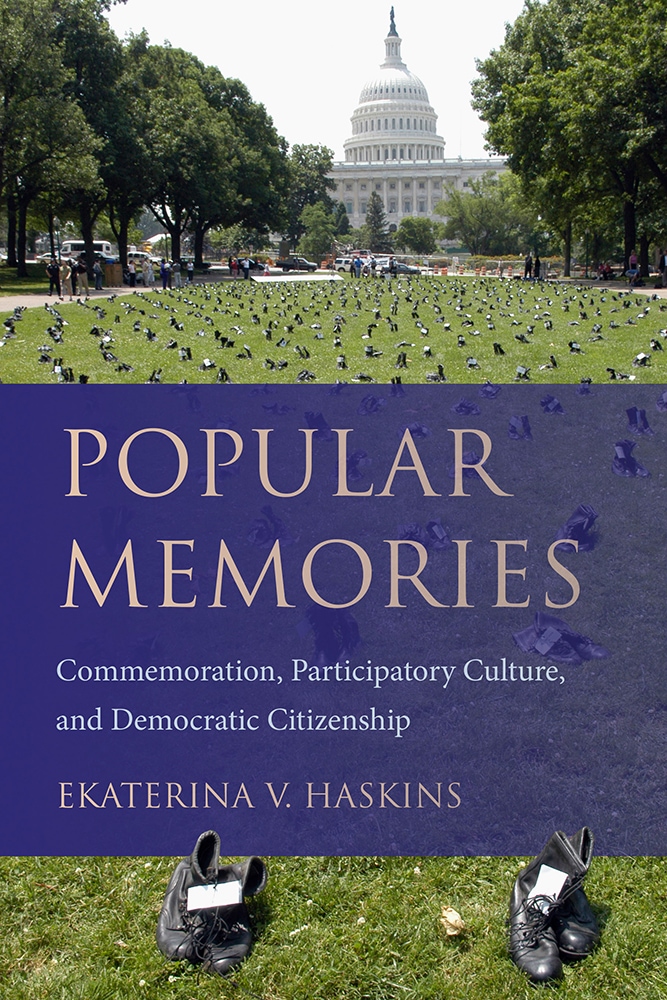Black History Month Sale: 40% off all books, plus FREE SHIPPING on all U.S. orders over $50 | Use code JBHM26

Size: 6 x 9
Pages: 188
Illustrations: 16 halftones
Ekaterina V. Haskins
The inclusion of this book in the Open Carolina collection is made possible by the generous funding of
"Popular Memories provides insight into the tensions between communal acts that make public memory an ongoing project of the people, and larger forces that sometimes highjack memorializing moments in the service of state or private concerns. Through deft readings of vibrant, and sometimes problematic, invitations to memorialize, Ekaterina Haskins offers a provocative exploration of the possibilities of participatory forms of memorializing for ordinary people to engage in meaningful practices of citizenship beyond voting. At a time when public spheres appear to be either moribund or mundane, Haskins shows how significant moments and events can enlist publics at once diverse and inclusive, and capacitated to shape public memory."—Gerard A. Hauser, College Professor Emeritus of Distinction in Rhetoric, University of Colorado Boulder
"Popular Memories is a vital addition to the rhetorical study of public memory in that it draws attention to the often neglected elements of citizen engagement and participation. By exploring different forms of participatory commemoration, Haskins demonstrates the ways that engagement can be energized or minimized and the potential impact such engagement might have on democratic culture."—Kendall Phillips, professor of communication and rhetorical studies, Syracuse University
"I was absolutely enthralled by Haskin's book. It was engagingly argued, exhaustively researched, elegantly written, and theoretically transformative. Her narrative reconstruction of the case studies drew me in, offering both broad historical context and vivid contemporary detail. Instead of rehashing old distinctions between vernacular and official, or ephemeral and physical, she focuses our attention on the relationship between commemorative practices and citizenship, asking, 'What modes of civic engagement does this participatory experience promote?"—Catherine H. Palczewski, professor of communication studies, University of Northern Iowa
Copyright 2026
Website By Morweb.org